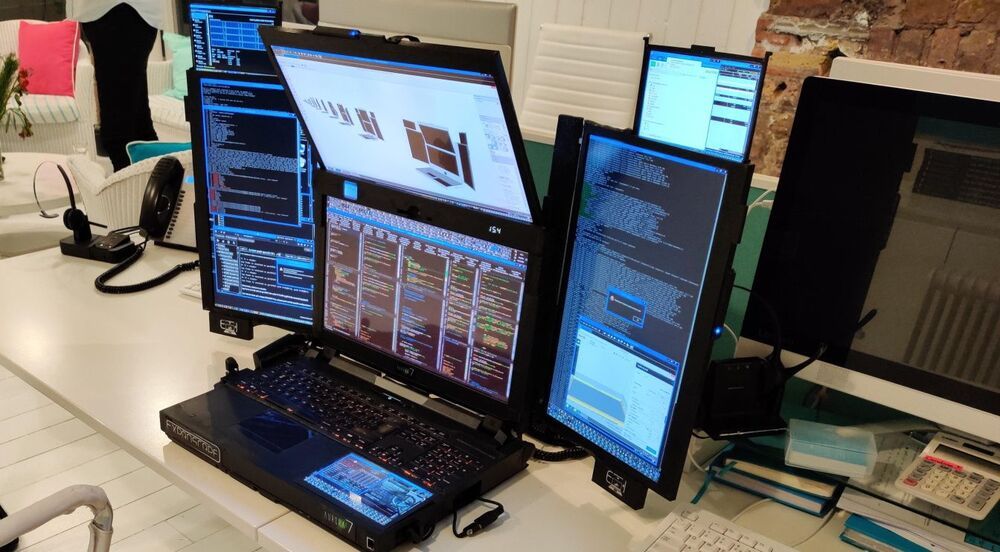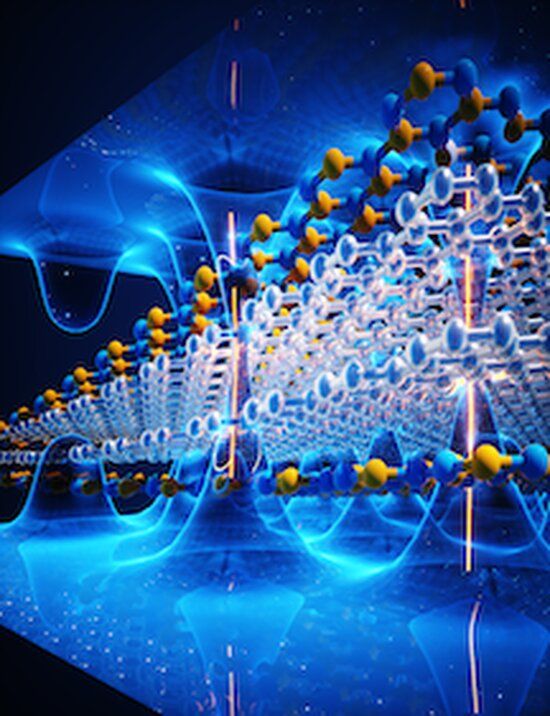Long-time trapping of a single electron could allow the particle to be used as an efficient quantum bit.




That’s not to say Taiwan is the only player in the semiconductor supply chain. The U.S. still holds dominant positions, notably in chip design and electronic software tools; ASML Holding NV of the Netherlands has a monopoly on the machines needed to fabricate the best chips; Japan is a key supplier of equipment, chemicals and wafers.
U.S., European and Japanese automakers are lobbying their governments for help, with Taiwan and TSMC being asked to step in. Chancellor Angela Merkel and President Emmanuel Macron discussed the potential for shortages last year and agreed on the need to accelerate Europe’s push to develop its own chip industry, according to a French official with knowledge of the matter.
The auto industry’s pleas illustrate how TSMC’s chip-making skills have handed Taiwan political and economic leverage in a world where technology is being enlisted in the great power rivalry between the U.S. and China — a standoff unlikely to ease under the administration of Joe Biden.
Taiwan’s grip on the semiconductor business — despite being under constant threat of invasion by Beijing — also represents a choke point in the global supply chain that’s giving new urgency to plans from Tokyo to Washington and Beijing to increase self-reliance.


Quantum Encryption, Privacy Preservation, And Blockchains — Dr. Vipul Goyal, NTT Ltd. Cryptography & Information Security Labs
Dr Vipul Goyal is a senior scientist at NTT Research (a division of Nippon Telegraph and Telephone Corporation, a telecommunications company headquartered in Tokyo, Japan.) and an Associate Professor in the Computer Science Department at Carnegie Mellon University (CMU), where he is part of the Crypto group, the theory group, a core faculty at CyLab (CMU security and privacy institute) and the faculty advisor of CMU Blockchain Group.
Previously, Dr. Goyal was a researcher in the Cryptography and Complexity group at Microsoft Research, India.
Dr. Goyal received his PhD from the University of California, Los Angeles.
Dr. Goyal is broadly interested in all areas of cryptography with a particular focus on the foundations of cryptography. Currently his research topics include secure multi-party computation, non-malleable cryptography, and foundations of blockchains.

In this video I show how I made a self-organisating network of Kuramoto-style oscillators in a system undergoing metaheuristic-guided synchronization. There are also ways to visually demonstrate this with relatively simple hardware, such as using modified microelectronics, controlled using microcontroller circuits.
In this project, which I have dubbed “Feynman’s Quantum Fireflies” I program individual systems of oscillators which display discontinuous pas coupling which can be implemented in a network of transceiver circuits. Using the Path Integral Approach is one way to understand how the system behaves like a quantum thermal bath.
This example is a self-organising network of flashing optical transceiver circuits, each circuit containing and RGB LED and phototransistor.
Each circuit is programmed under a simple principle of discontinuous pas-coupling as discussed before to achieve synchronization but this results in behavior across the entire network space that is a collective emergent behavior that has not been explicitly programmed, it emerges as a discrete simulation of a pseudo-quantum system.
This emergent behavior of the network is in fact a visual demonstration of how the network regulates itself over time to the most energy efficient configuration possible, which is to the state of most uniform synchronisation.
We can understand this synchronized state as being the ground state of our whole system, which the set of oscillators wants to head towards.

MIT researchers and colleagues have discovered an important—and unexpected—electronic property of graphene, a material discovered only about 17 years ago that continues to surprise scientists with its interesting physics. The work, which involves structures composed of atomically thin layers of materials that are also biocompatible, could usher in new, faster information-processing paradigms. One potential application is in neuromorphic computing, which aims to replicate the neuronal cells in the body responsible for everything from behavior to memories.
